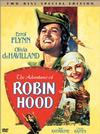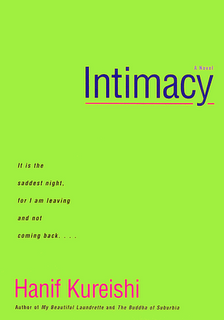 Movie’s title: Chicken Run
Movie’s title: Chicken RunDirected by and written: Peter Lord & Nick Park
Screenplay by: Karey Kirkpatrick
Es temprano. Me he levantado temprano. Después de algunas actividades me siento en el sofá y (con el remote control en mano) me dispongo a hacer una búsqueda rápida por los canales que mi TV (estando conectado al cable On Demand) dispone. Apretando seguidamente el botón CHANNEL + del largo aparto gris, la idea de encerrarme en mi cuarto y escribir crece. Entonces recuerdo (queriéndole dar la última oportunidad a la pantalla y a una distracción inmediata, por qué no decirlo) que dispongo de algunos canales gratuitos (que pronto ya no serán gratuitos) en los que pasan sólo movies. En uno de ellos, para ser precisos en HBO en español están dando el (creo yo) más reciente video clip -hasta el momento- del regetonero Daddy Yankee, “Gansta Zone”. Personalmente no me agradaba dicha canción y por eso paré en ese canal para ver cuál era su mistake. Acabó dicho video clip y ahora, digámoslo así, puedo pasarlo, digerirlo pero nada más.
Llendo al grano: Después de tal canción visualizada de una mala manera, seamos sinceros, pasó otra que era un remix con otro regetonero que me agrada pero que describirla no es el motivo de estas líneas. Bueno, continuando en el mismo canal me alegro al presenciar el comienzo de una película animada llamada: Chicken Run.
Me cautivó de principio a fin, en sus momentos tristes y de humor. Es la historia de una granja de gallinas mostradas de una manera particular, de una manera que refleja cómo es una sociedad de gallinas. Pues, aunque suene gracioso el término “sociedad”, es eso lo que se ve. En esa granja de gallinas hay una en particular, Ginger, la que toma el liderazgo y la que siempre planea una forma de escapar de esa granja-prisión-esclavitud. La película muestra a las gallinas de una manera que aunque uno ya sabe que estos animales nos son útiles por los huevos y su carne y si no ponen huevos pues se las tiene que sacrificar al instante y así hacer provecho de la segunda opción, nos hace cambiar de perspectiva (al menos a mí) y cuestionar esa acción con un: ¿por qué? Cuando vemos en una escena a Ginger, después de haber visto a una de sus amigas ser sacrificada por los granjeros reflejados como malvados, ambiciosos, déspotas que maltratan a las gallinas a las cuales ellos consideran como cualquier cosa menos un ser viviente, mirar con nostalgia el cielo en el que vuelan algunas aves. Aquel sueño que cada vez parece muy improbable; aquel paraíso, aquella felicidad que Ginger siempre dice a sus compañeras que tienen derecho a aspirar; aquella libertad que, con su amiga degollada por no haber puesto suficientes huevos, parece cerrar sus puertas. Esto es sólo es una pequeña parte de lo que es 'Chicken Run' que con su humor y reflexión hacen que el espectador sienta lo que tiene y lo que otros carecen y así poder valorarlo. Entre los personajes más cautivadores están: la líder gallina Ginger, el gallo ‘volador’ Rocky y el gallo de las ‘Fuerzas Armadas’ Flower.
Haciendo un breve research en The Internet Movie Database hallo información valiosísima de este drama de comedia que muestra mucha valentía en sus personajes y que fue (en el 2000) el primer film de longitud completa de los Estudios Aardman (Reinos Unidos).
Y para terminar, una de las frases que me agrada en la movie es:
[Babs (el nombre de una gallina) se había desmayado a causa de una experencia que casi le cuesta la vida]
Babs: Toda mi vida vino de repente ante mis ojos.
[desilusionada]
Babs: Fue realmente aburrida.
La recomiendo y le doy 4 estrellas de 5.



 Novel’s title: South of the Border, West of the Sun.
Novel’s title: South of the Border, West of the Sun.
